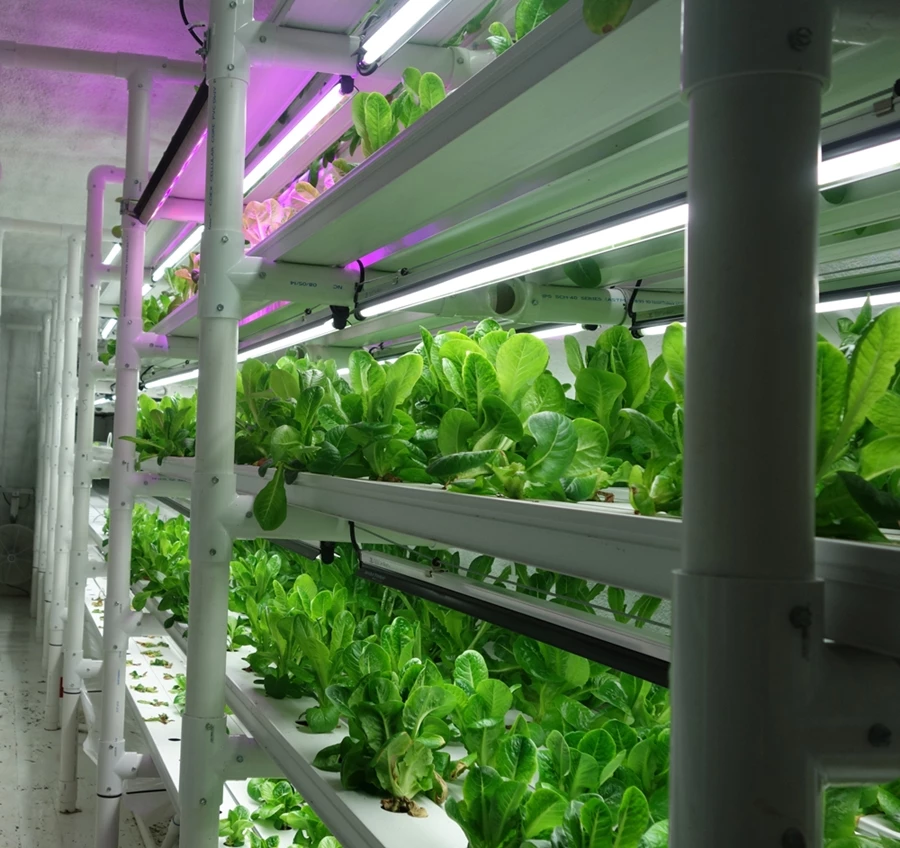Ensuring that the food we eat is locally and sustainably grown is not always easy, especially in cities where crop-growing space is at a premium. Firms like Freight Farms and Cropbox, however, have a solution to this problem. They offer shipping containers that are kitted out as self-contained farms.
We've already seen the humble shipping container reappropriated for all sorts of different uses, including as part of an inner city farm concept. Freight Farms and Cropbox actually deliver that concept, albeit more practically and one container at a time.
The containers offered by both companies feature hydroponic technology, which employs a mineral-based solution in which to grow crops rather than soil. This means that the quality of the produce is not affected by prevailing weather conditions and that the conditions can be precisely tailored.
According to Cropbox, such systems use up to 90 percent less water than traditional growing methods. Both firms offer LED lighting in their containers too, which also compares favorably to other lighting methods. Overall, Freight Farms says each one of its containers takes 30,000 kWh of electricity annually to run.

Freight Farms and Cropbox both provide a mobile app from which the environments of their containers can be controlled. Factors such as water, air quality and temperature can be monitored and adjusted from a smartphone.
The Freight Farms containers have designated spaces for different stages of plant growth, including a seedling and germination area for 2,500 plants, and 256 vertical towers for the growth of over 4,500 mature plants. Cropbox, meanwhile, says each of its containers can support up to 3,000 plants.
Customers can take on just one container if they wish, but one of the benefits of shipping containers is that they can be stacked. This means that its possible to create a very high density and high yield farms of stacked containers.
Freight Farms has been operating since 2010, but is currently rolling out an updated model of its shipping container. They start at US$76,000 to purchase with financing options available. The Cropbox was newly announced by its parent company Williamson Greenhouses in January. Each one is available to purchase from $49,347 or to lease for a monthly price of $999.
Sources: Freight Farms, Cropbox







